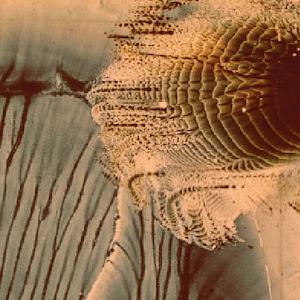- About the Course:
Human societies constantly change at many levels, from individuals to communities and nation states. Throughout history, and at present, societies become more innovative, more integrated, and more cooperative on some levels, while on others they become more inert, more polarized, and more belligerent. To understand and perhaps even predict these trends and their consequences, we need to capture the complex interplay of underlying cognitive, social, and institutional mechanisms – by integrating theoretical, modeling, and empirical investigations.
This program is a partnership between the Santa Fe Institute and the Max Planck Institute for Mathematics in the Sciences and Hamburg University of Technology (Germany), Complexity Science Hub Vienna (Austria), Quantitative Life Sciences, International Center for Theoretical Physics (Italy), and Institute for Advanced Studies, University of Amsterdam (Netherlands).
Program Support This program is made possible through the support of the National Science Foundation under Grant No. 2106013 (PI Krakauer), IRES Track II: Complexity advanced studies institute - Germany, Austria, Italy, Netherlands (Complexity-GAINs). Any opinions, findings, and conclusions or recommendations expressed in this material are those of the investigator(s) and do not necessarily reflect the views of the National Science Foundation.
- About the Instructor(s):
 Mirta Galesic, Professor at the Santa Fe Institute and external faculty at the Complexity Science Hub Vienna. Her research investigates how the intersection of internal cognitive mechanisms and external environment factors leads to complex social phenomenon such as belief dynamics and opinion formation.
Mirta Galesic, Professor at the Santa Fe Institute and external faculty at the Complexity Science Hub Vienna. Her research investigates how the intersection of internal cognitive mechanisms and external environment factors leads to complex social phenomenon such as belief dynamics and opinion formation.
 Henrik Olsson, external faculty at the Santa Fe Institute. His work focuses on understanding how properties of individual decision strategies and social network structures affect group performance by connecting research in social cognition and decision-making with insights from physics, statistics, and machine learning.
Henrik Olsson, external faculty at the Santa Fe Institute. His work focuses on understanding how properties of individual decision strategies and social network structures affect group performance by connecting research in social cognition and decision-making with insights from physics, statistics, and machine learning.
 Stefan Thurner, President and faculty member of the Complexity Science Hub Vienna and external faculty at the Santa Fe Institute. His research accomplishments are broad, ranging from foundational physics to economics and finance. His recent work on social systems addresses opinion formation and collective human behavior.
Stefan Thurner, President and faculty member of the Complexity Science Hub Vienna and external faculty at the Santa Fe Institute. His research accomplishments are broad, ranging from foundational physics to economics and finance. His recent work on social systems addresses opinion formation and collective human behavior.- Course Team:
Carrie Cowan, SFI Director for Education, helps lead the Santa Fe Institute’s mission to equip the next generation of researchers and scientists with the tools and creativity needed to solve the critical problems that face society. She joined SFI in 2019 to enhance SFI’s renowned in-person and online educational programs.
- How to use Complexity Explorer:
- How to use Complexity Explorer
- Enrolled students:
-
48
- Course dates:
-
20 Mar 2022 6am UTC to
30 Sep 2022 11pm UTC - Prerequisites:
- Like this course?
- Donate to help fund more like it
- Twitter link
Syllabus
- Introduction
- Travel, Housing & Meals
- Participants
- Schedule
- Background Reading
- Group Projects
- Lecture Content
